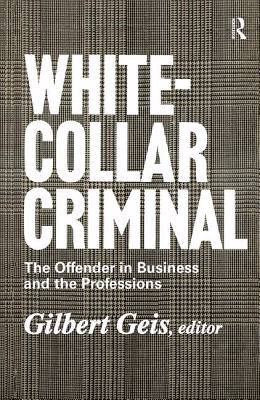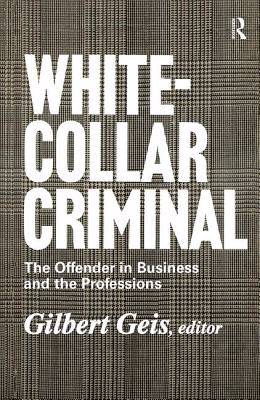
- Retrait gratuit dans votre magasin Club
- 7.000.000 titres dans notre catalogue
- Payer en toute sécurité
- Toujours un magasin près de chez vous
- Retrait gratuit dans votre magasin Club
- 7.000.0000 titres dans notre catalogue
- Payer en toute sécurité
- Toujours un magasin près de chez vous
White-collar Criminal
The Offender in Business and the Professions
Renssalaer Lee, Gilbert Geis
Livre relié | Anglais
290,45 €
+ 580 points
Format
Description
In his presidential address to the American Sociological Society more than a quarter of a century ago, Edwin H
Spécifications
Parties prenantes
- Auteur(s) :
- Editeur:
Contenu
- Nombre de pages :
- 462
- Langue:
- Anglais
Caractéristiques
- EAN:
- 9781138540521
- Date de parution :
- 01-11-17
- Format:
- Livre relié
- Format numérique:
- Genaaid
- Dimensions :
- 152 mm x 229 mm
- Poids :
- 784 g

Les avis
Nous publions uniquement les avis qui respectent les conditions requises. Consultez nos conditions pour les avis.






